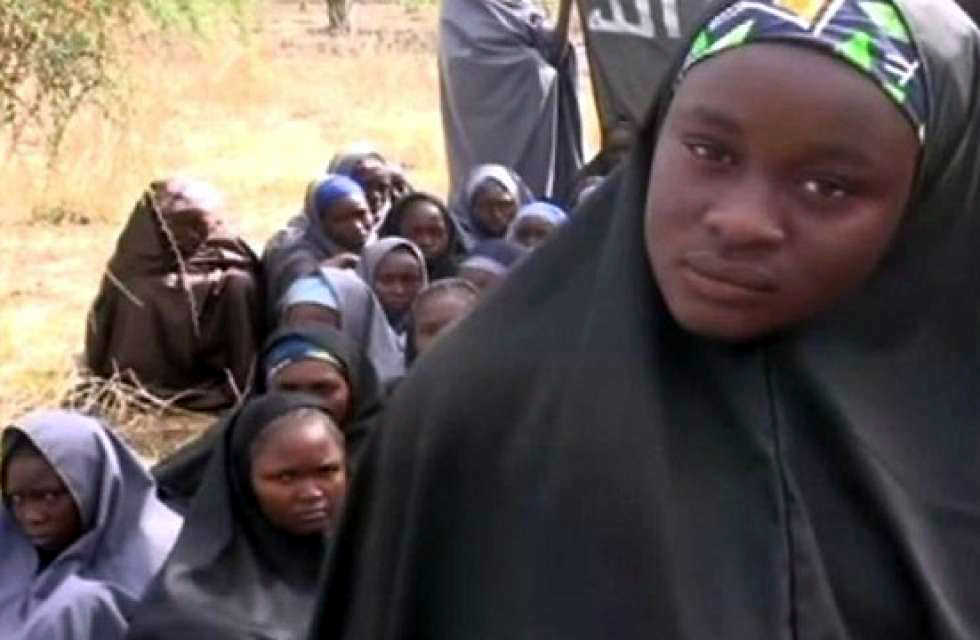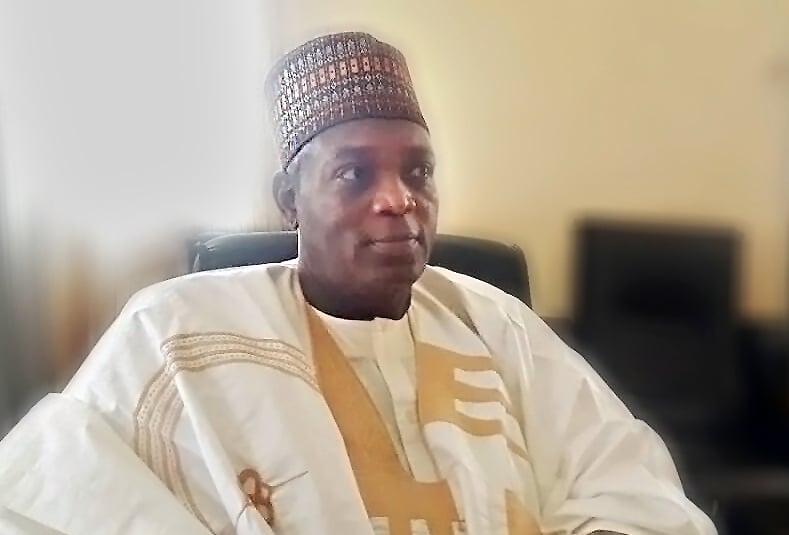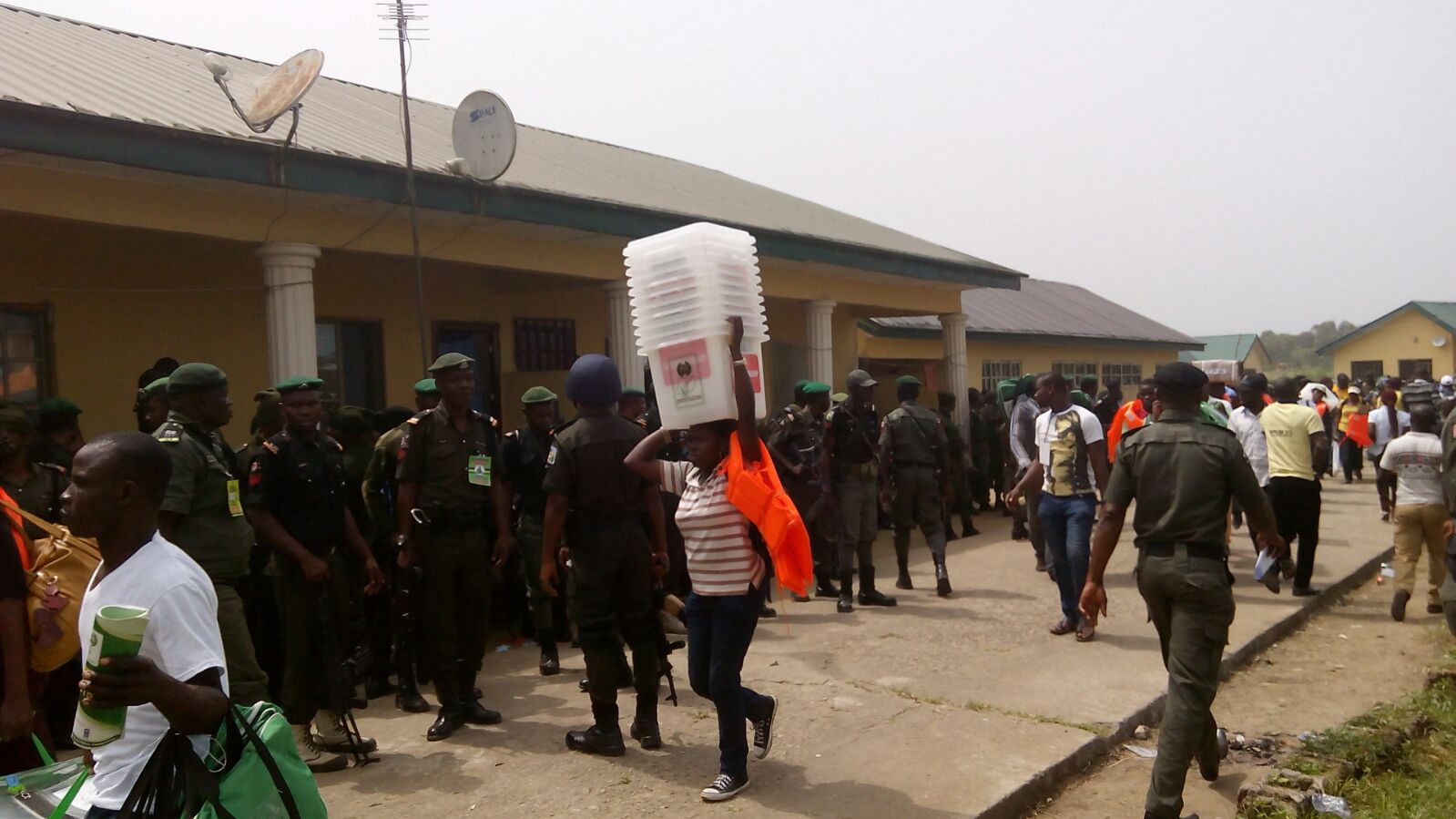My head is starting to spin. In 24 hours, girls were kidnapped not kidnapped abducted not abducted missing not missing found not found rescued not rescued. We have even managed to confuse international media. CNN’s falcon cannot hear BBC’s falconer. Magic realism…
— Pius Adesanmi (@pius_adesanmi) February 22, 2018
Pius Adesanmi, a professor at Carleton University, Canada, could well have been talking about the kidnap of Chibok schoolgirls in 2014. But, no, he is talking about the kidnap of Dapchi schoolgirls in 2018.
Karl Marx has said it: history repeats itself, first as tragedy and then as farce.
Advertisement
But this is looking first like farce. The tragedy may still be unfolding.
On April 14, 2014, the little-known town of Chibok located in Borno state was thrust unceremoniously into the global scene for the wrong reason – 276 female students of Government Secondary School Chibok were kidnapped by Boko Haram insurgents and herded off to captivity.
CONFLICTING SIGNALS
Advertisement
With the nation stunned by the brazen kidnap of the Chibok school girls, attention shifted to the Nigerian military for answers.
Unfortunately, a cloud of confusion ensued with the military twice giving conflicting information; first that all but eight of the Chibok girls had been rescued and were re-united with their families. This was later retracted.
The second statement said some of the Chibok girls were rescued and were under protective military custody. It turned out to be untrue.
It was later revealed that some of the girls escaped from captivity, some jumping off the moving trucks used by the insurgents as they were being conveyed to Boko Haram strongholds as hostages. It became clear that indeed, something had happened in Chibok.
Advertisement
There was no hiding place.
‘WE WERE MISLED’
Alex Badeh, air chief marshall and chief of defence staff at the time, admitted that the information earlier relayed was incorrect, but blamed military officers on the ground for misleading with wrong information.
“If your people are misleading you, what do you do? There was a report that we have seen some of the girls and only eight are missing. It was a very senior officer that gave that information from Chibok area; and I think that is when people started saying watch what Chris Olukolade (then-military spokesman) is saying, but he was misled by one of us. There are too many fifth columnists,” he said.
Advertisement
There were also conflicting reports on the exact number of girls kidnapped by Boko Haram, with figures ranging from 250 to 400.
The administration of then-President Goodluck Jonathan kept mum on the growing controversy, speaking only for the first time on May 4, 2014 about efforts to rescue the girls after criticism mounted.
Advertisement
On May 5, 2014, Boko Haram leader Abubakar Shekau claimed responsibility for the Chibok girls’ kidnap, vowing to sell them off to slavery.
At once global condemnation and anger erupted; the #BringBackOurGirls movement berthed, with the government heavily criticised for not being proactive and for showing initial doubts about the whole affair.
Advertisement
PASSING THE BLAME
Despite the public angst about the seemingly shoddy handling of the Chibok affair, the blame game continued unabated.
Advertisement
Borno state governor Kashim Shetimma accused the Jonathan administration of being aloof and unwilling to negotiate for the release of the detained girls.
“If I have to talk to the devil to secure the release of the girls, I will do so. President Jonathan did not act on time and did not talk to me over the kidnappings until 19 days after,” he said.
But the Borno governor was equally blamed for refusing to comply with a federal directive not to open the school for any academic activities because of the deteriorating security situation.
Former first lady, Patience Jonathan, also called into question the real intentions of the Borno state government after calling on Shettima’s wife to chair a stakeholders forum to address the quagmire without success.
“After the incident, I waited for her, she did not come. I sent for her, she came. I asked questions, no answer. I asked her to come with the principal and parents; she did not turn up till today. To our greatest surprise, she sent a commissioner. The next thing I saw was women demonstrating. No woman will fold her hands while her house is on fire,” she said.
This blame game continued right into the election calendar of 2015.
HISTORY ON AUTOREPEAT?
Without doubt, the conflicting information from security personnel on ground, the clear lack of trust between the federal and state governments on the best approach elongated the captivity of the Chibok Girls in the hands of Boko Haram.
It took over two years and intensive negotiations to rescue some of the girls. Nigeria has never fully recovered from the bruising Chibok nightmare.
Now less than four years after, precisely on Monday February 19, 2018, another abduction of female school girls occurred in neighbouring Yobe state. This time over 90 female students of Government Girls Science Technical College (GGSTC), Dapchi, have gone missing.
There is still a lot of back and forth, it happened it didn’t happen, some have been rescued none has been rescued.
The state governor Ibrahim Gaidam confirmed the incident on Wednesday. After initially saying some girls have been rescued, the state government now blames it on fake news. Sounds familiar.
Add a comment






